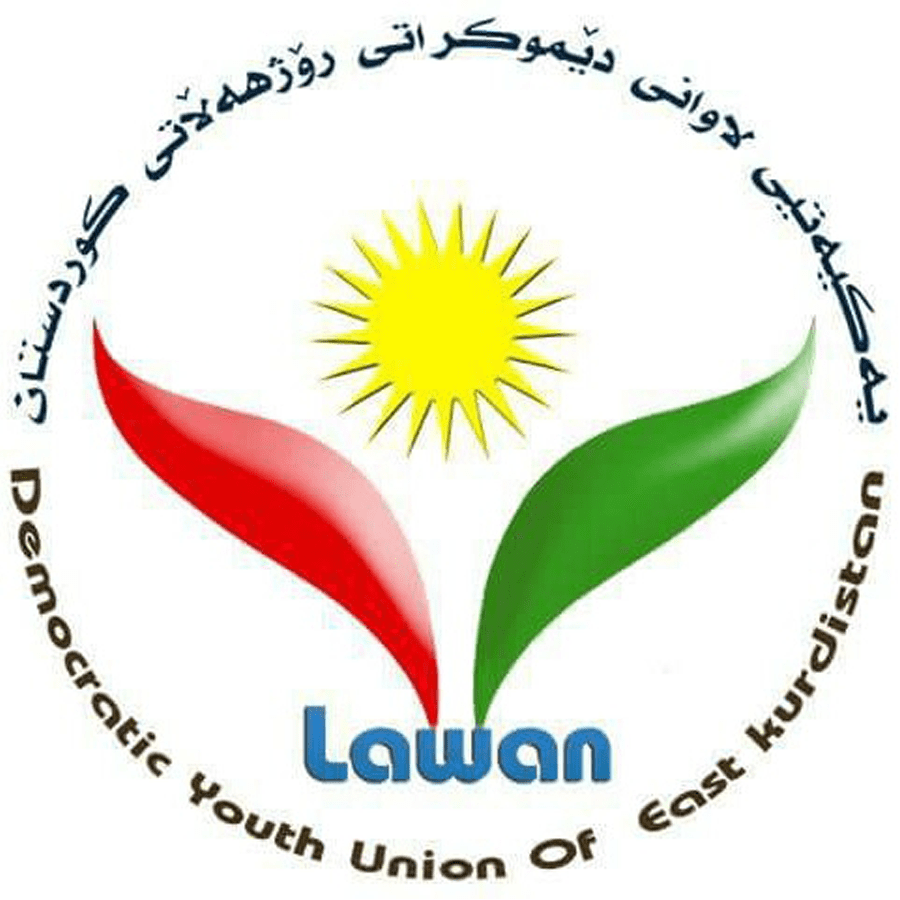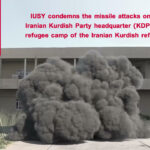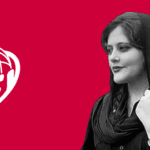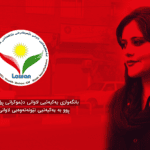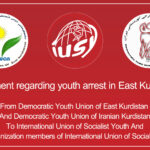Ladies and gentlemen
Distinguished guests
The conference of IUSY is at the time the world order has changed and the Middle East faces great chaos, war,
and violence. The main responsibility of youth at this ear of violence is to advocate for nonviolence and peace in the world. I have great respect for those Kurdish peshmerga youth who sacrificed their lives to fight ISIS and protect humanity from one of the most barbaric ideology in human history. We are safe here perhaps because many Kurdish youth gave their lives to stop the spread of Islamic terrorism in the world.
I would like to thanks those who organized this conference so we can discuss peace and stability in the Middle East. The underlying cause of the Middle East instability is the oppression of some national, religious, and social groups by the oppressive regimes in this region. Among these oppressive regimes, the Islamic Republic of Iran is a major source of violence and disability in the Middle East. The Iranian regimes before and after the 1979 Iranian Revolution have oppressed democratic and peaceful movements that aimed to achieve the rights of national groups, women, and youth in Iran. What is common between the former monarchy system and the current regime of Iran is the refusal to acknowledge the right of various national groups in Iran; Kurds in Iran suffered the most from the tyranny of Iranian regimes. In 1946, Kurds under the leadership of Qazi Mohammed established a republic in Mahabd. This republic allowed and encouraged women and youth to participate in politics, established schools for girls, and provided the conditions for the Kurdish language to be taught and learnt. The Republic of Kurdistan in Mahabad protected religious minorities and provided them with full citizenry rights. The Iranian king could not tolerate this democratic republic and unfortunately executed Qazi Mohammed. The Islamic Republic of Iran in 1989 in Vienna assassinated Abdul Rahman Ghassemlou, the general secretary of the Kurdistan Democratic Party of Iran (KDPI), while he was negotiating with so called Iranian diplomats to reach a peaceful solution for the rights of Kurds. Three years later Sadegh Sharafkandi, the leader of KDPI, was assassinated by the Iranian regime in Berlin.
The Iranian regime has fed the tension between Sunnis and Shi’as in the Middle East. The Iranian Revolutionary Guards has given military and financial support to different terrorist and militia groups in Libya, Yemen, Palestine, Lebanon, Syria, and Iran to increase instability of the Middle East. On December 20 of last year, the Iranian Revolutionary Guards did a bomb attack near KDPI’s headquarter in Koya Sanjaq in Iraqi Kurdistan; the explosion took the lives of seven members of this party and of the Democratic Youth Union of East-Kurdistan.
Our organization believes that religious fundamentalism has become the number one threat to peace and order in the world. Religious fundamentalism cannot be eradicated with only physical war, so there is a need for promoting awareness and religious tolerance. Youth are the main target group of fundamentalist groups to recruit new members. Iranian Kurdistan is located in a region full of political and religious violence, so there have been negative impacts on its youth. Our organization has tried to encourage youth in Kurdistan to be part of promoting human rights and religious tolerance inside Iran.
Dear friends,
As we discuss peace in the world, we should not forget the civil struggle of many activists against dictatorial regimes. Now Mohammad Sadiq Kaboudvand, a well-known Kurdish journalist and human rights activist, is in the prison of the Iranian regime. This year Kaboudvand is nominated for Noble Peace Prize and we as the Democratic Youth Union of East Kurdistan ask all organizations advocating for human rights to support the nomination of Kaboudvand.
Another major human rights issue of Iranian Kurdistan is the case of Kurdish porters in the borders between Iran and Iraq. Unfortunately cities in Iranian Kurdistan are undeveloped and the rate of unemployment is high so youth in these cites become porters. The Iranian regime has killed many Kurdish porters in the last years and many were lost their lives because of the harsh condition of winter and avalanche.
We believe that a country can achieve peace and prosperity if all social and national groups within this country enjoy equal rights and opportunities. Therefore, we condemn the economic policy of the Iranian regime for keeping Kurdish cities undeveloped and poor.
In Turkey, we see a strong tendency towards authoritarianism and its democratic institutions have weakened greatly. Many Kurdish MPs were put in jail in Turkey and the Turkish army created destruction in Kurdish cities and committed atrocity against civilians. We urge international community to put pressure on Iran and Turkey to respect human rights.
Dear friends,
For years the only major Middle East conflict known in the world was the Israel-Palestine conflict, yet now the case of Kurds in Iraq, Turkey, Syria, and Iran has become internationalized. Each part of Kurdistan has its own conditions, yet Kurdish political forces in all four countries have tried to negotiate and obtain their rights through peaceful means. Unfortunately the regimes in power in Iran, Syria, Turkey, and Iraq denied the rights of Kurds, put Kurdish journalists and activists in jail, and executed political prisoners. With the refusal of these regimes to acknowledge the rights of Kurds, Kurds have had no solution but maintaining their military struggles. Peace and stability in the Middle East can be achieved only if Kurds and other nations get their independence and a peaceful Kurdistan be added to the world map.
Peshewa Alipour
